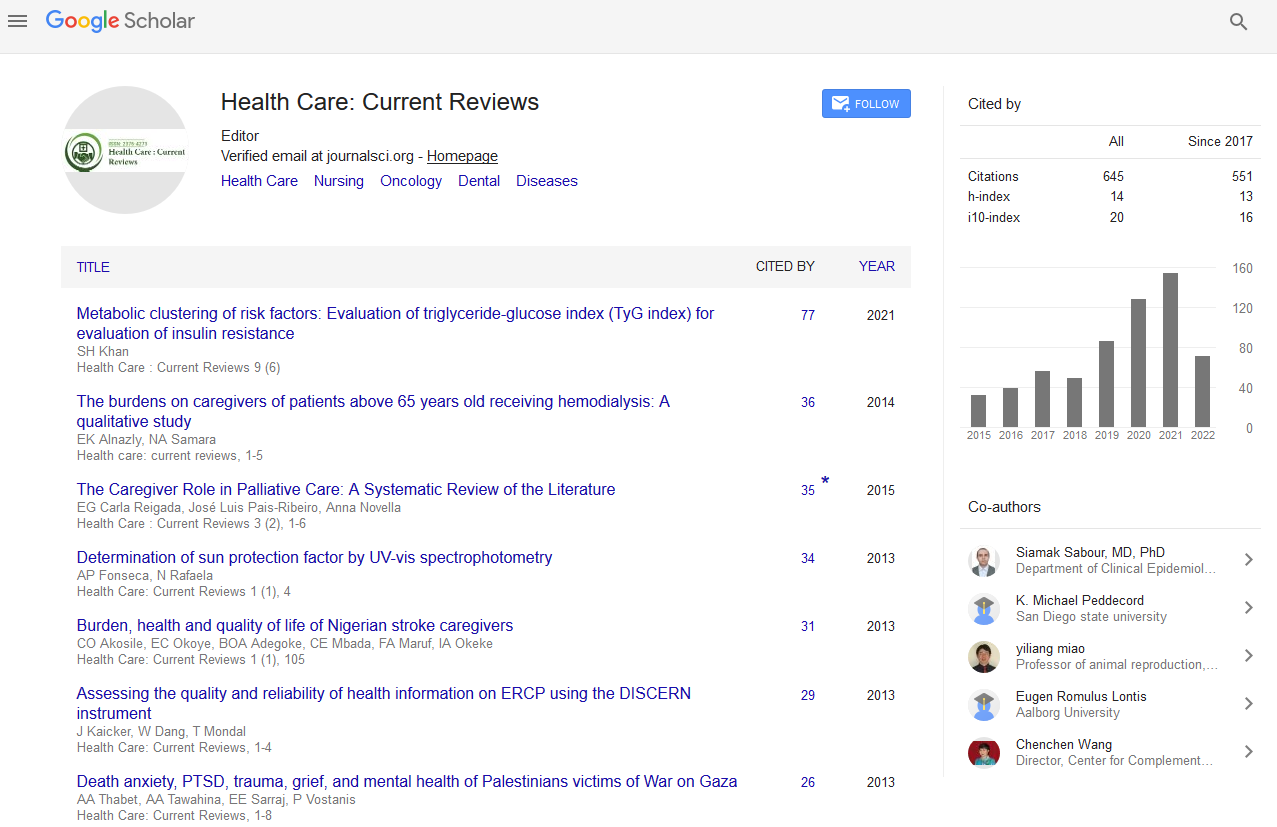PMC/PubMed Indexed Articles
Indexed In
- Open J Gate
- Academic Keys
- RefSeek
- Hamdard University
- EBSCO A-Z
- Publons
- Geneva Foundation for Medical Education and Research
- Google Scholar
Useful Links
Share This Page
Journal Flyer

Open Access Journals
- Agri and Aquaculture
- Biochemistry
- Bioinformatics & Systems Biology
- Business & Management
- Chemistry
- Clinical Sciences
- Engineering
- Food & Nutrition
- General Science
- Genetics & Molecular Biology
- Immunology & Microbiology
- Medical Sciences
- Neuroscience & Psychology
- Nursing & Health Care
- Pharmaceutical Sciences
Abstract
Delivering Healthcare and Education as Rightful Services not Commodities: A Noble Cause with Great Practical Implications at Children’s Cancer Hospital – 57357 Egypt
Soliman R, Eweida W, Zamzam M and Abouelnaga S
Health care and education should be delivered to everyone as rightful services with a moral motive evolving form the fact that they are basic human rights and not commodities. Services are attainable rights, while commodities are only delivered or become of better quality when someone pays for them. Being labelled as rightful services, healthcare and education cannot be owned. And that is the right policy for health and education reform, because if they were owned as commodities, it would be easy to control them and limit their delivery based on affordability. The delivery of healthcare and educational services as rightful services has humanistic, economic and developmental implications. From a humanistic standpoint, healthcare and education should be delivered as basic human rights, and not as gifts or privileges that are granted to people with terms and conditions. Also, the concept of delivering healthcare and education from an economical versus commercial point of view will lead to the delivery of more services with lower costs, thus increasing access to these services and leading to more productivity and overall economic positive output. Consequently, this would have a developmental implication, where the performance of individuals who receive their basic human rights would tremendously improve as a result of being healthy and well-educated. These concepts have actually been practically applied at the Children’s Cancer Hospital – 57357 Egypt which treats children with cancer free of charge and implements continuous learning and education for its patients and employees as rightful services. The hospital sets an example for health policy planning and implementation as a role model towards healthcare reform in low and middle income countries.


